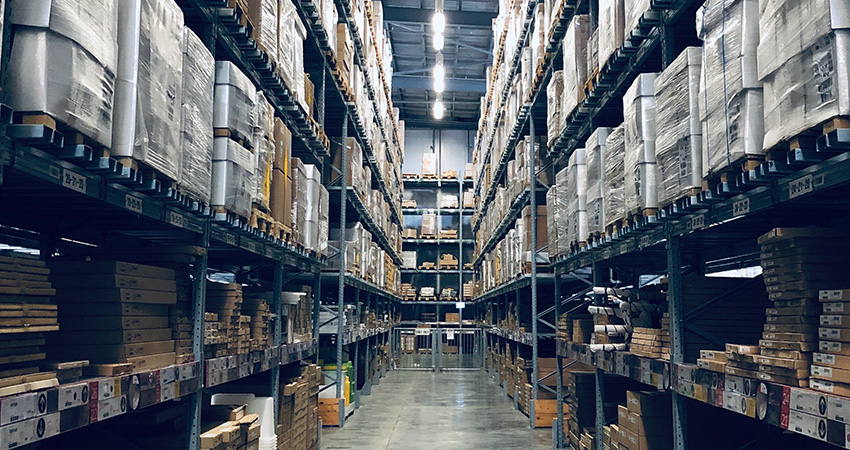Finding the right 3PL can free you up to focus on more core aspects of your business (credit: Ruchindra Gunasekara on Unsplash)
While business success for retailers depends in large part on their supply chains, they are extremely difficult and complicated to manage. Handling shipping, distribution and other aspects of logistics on your own can easily occupy an outsized percentage of your attention. This leaves you little time to do what you love: nurturing and growing your business.
For this reason, many companies choose to delegate or outsource the parts of their operations outside their core expertise or competency. According to Armstrong & Associates, 90% of the Fortune 500 rely on a third-party logistics provider (3PL).
Since supply chain logistics are extremely important responsibilities, you’ll want to choose a 3PL that knows your industry inside and out. Here are some helpful tips for choosing the right one for your business.
Know What You Need
First, clarify which specific services you’re looking for and your needs for each. How much storage space do you need? Will you require multiple forms of transportation for delivery? How far do you need to ship your order? Many 3PLs look pretty much the same on the surface and offer the same basic services, but these types of questions can help you dig deeper and determine the ideal choice for your needs.
Be sure that the 3PL has demonstrable experience specific to retail and ecommerce, which carries its own distinctive challenges and regulations. A 3PL without that experience could end up making flawed decisions that hurt your business. For example, a 3PL that has worked with other retailers has most likely experienced seasonal demand spikes.
Make sure your short list only lists 3PLs that can boast several good references from customers, vendors and carriers in your industry.
Look for the Latest Technologies
Another telltale sign of a reputable 3PL is the ability to seamlessly integrate their software with your systems. The more advanced technologies typically integrate easier and faster, and will likely be compatible with your inventory and storage systems. Asking about integration is an easy way to tell if a 3PL is using the latest software.
Technologies like transportation management systems (TMS), warehouse management systems (WMS) and freight forwarding software play a crucial role in a 3PL’s success. Specifically ask potential partners exactly how they plan to use technology to help you achieve your goals in those areas. I also like to ask about how a potential partner is using AI, machine learning and advanced data processing, since this is a clear indication that they’re keeping up with the latest developments.
For example, to what extent have they automated their fulfillment process? Do they know which data points are most important to retailers in 2023? A good 3PL should be fully prepared to explain all the different ways it can help you achieve supply chain efficiency and maximize your business’s profitability.
They Need to be Able to Scale
If your business is growing, make sure your 3PL is capable can scale and flex its services with your business needs. If you’re in growth mode, they need to be able higher volumes without any interruptions. It’s the 3PL’s responsibility to follow the industry and make the necessary investments to solve new challenges.
To get a sense of their scalability, ask about recent changes they’ve made in technology, infrastructure and staffing. A 3PL that has remained static in these areas might not be ready to keep up with the demands of a dynamic industry. Also ask them about a specific time when they had a customer in high growth mode, and how they accommodate their needs.
Customer Service
There’s little that frustrates me more than waiting to talk to a customer care agent, only to be passed off to a different department or staffer again and again. When you outsource logistics, you’re trusting another company with a central component of your business’s operations. Thus, be sure they can respond promptly and are fully prepared to field your questions or concerns at any time. A 3PL builds its reputation by consistently excellent customer service and establishing trust, particularly with new clients.
If there’s a supply chain disruption or logistical problem, a good 3PL immediately responds and give the issue proper attention, regardless of how many other clients they’re serving. Since this is unfortunately a common scenario, ask how you would contact them for support, and who would be your daily contact. When stressful situations arise, you need to be sure you’re speaking with a knowledgeable, confident individual who won’t pass you down the line.
Final Thoughts
Outsourcing logistics is much easier when you partner with the right 3PL. In most cases, it just comes down to finding a provider that knows your industry, is prepared for the future and possesses the resources to treat this new partnership as a top priority and help you succeed.
Carl Wasinger is the founder and CEO of Smart Warehousing

